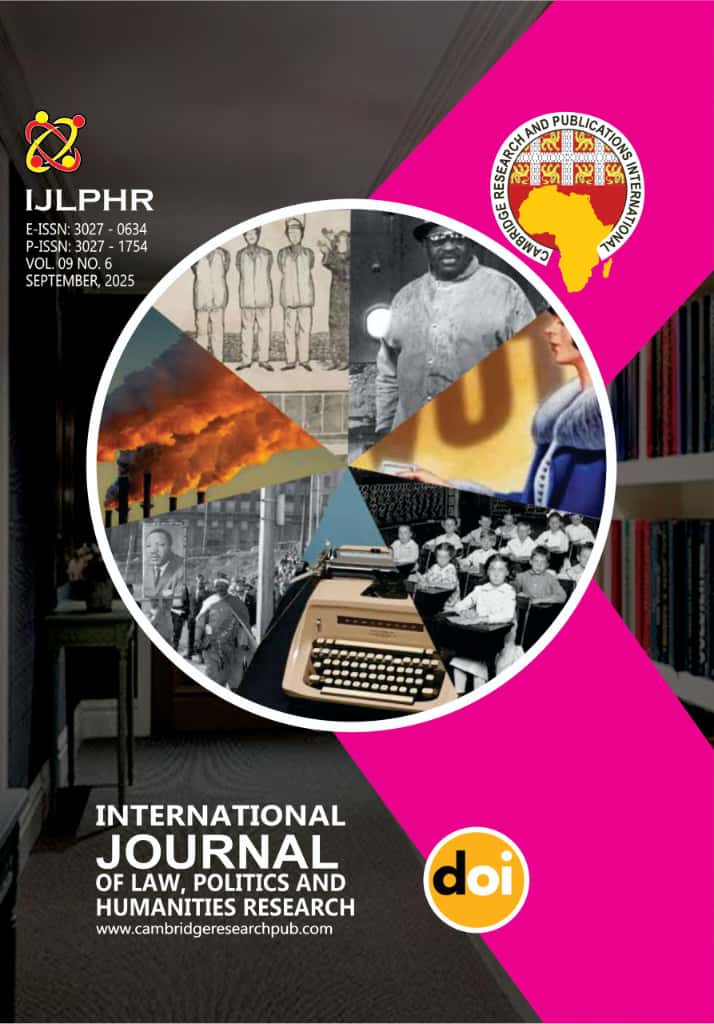NEGOTIATING AUTONOMY: THE ROLE OF CULTURE, RELIGION, AND GENDER IN FEMALE GENITAL MUTILATION PRACTICES IN NORTHERN NIGERIA
Main Article Content
Abstract
Female Genital Mutilation (FGM) remains a deeply entrenched practice in Northern Nigeria, shaped by complex intersections of culture, religion, and gendered expectations. Despite legal prohibitions and advocacy campaigns, the practice persists, often justified through communal ideals of purity, marriageability, and morality. This study investigates how women in Northern Nigeria negotiate autonomy in contexts where FGM remains a cultural and religious norm. Drawing on qualitative interviews with women across diverse communities, the research highlights how women resist, reinterpret, and sometimes accommodate cultural pressures. Findings reveal that women strategically navigate communal belonging, religious discourses, and bodily rights, illustrating agency within constraints. The study contributes to feminist and postcolonial debates by reframing women not only as victims of patriarchal systems but also as active agents in negotiating their embodied lives.
Downloads
Article Details
Issue
Section

This work is licensed under a Creative Commons Attribution 4.0 International License.




